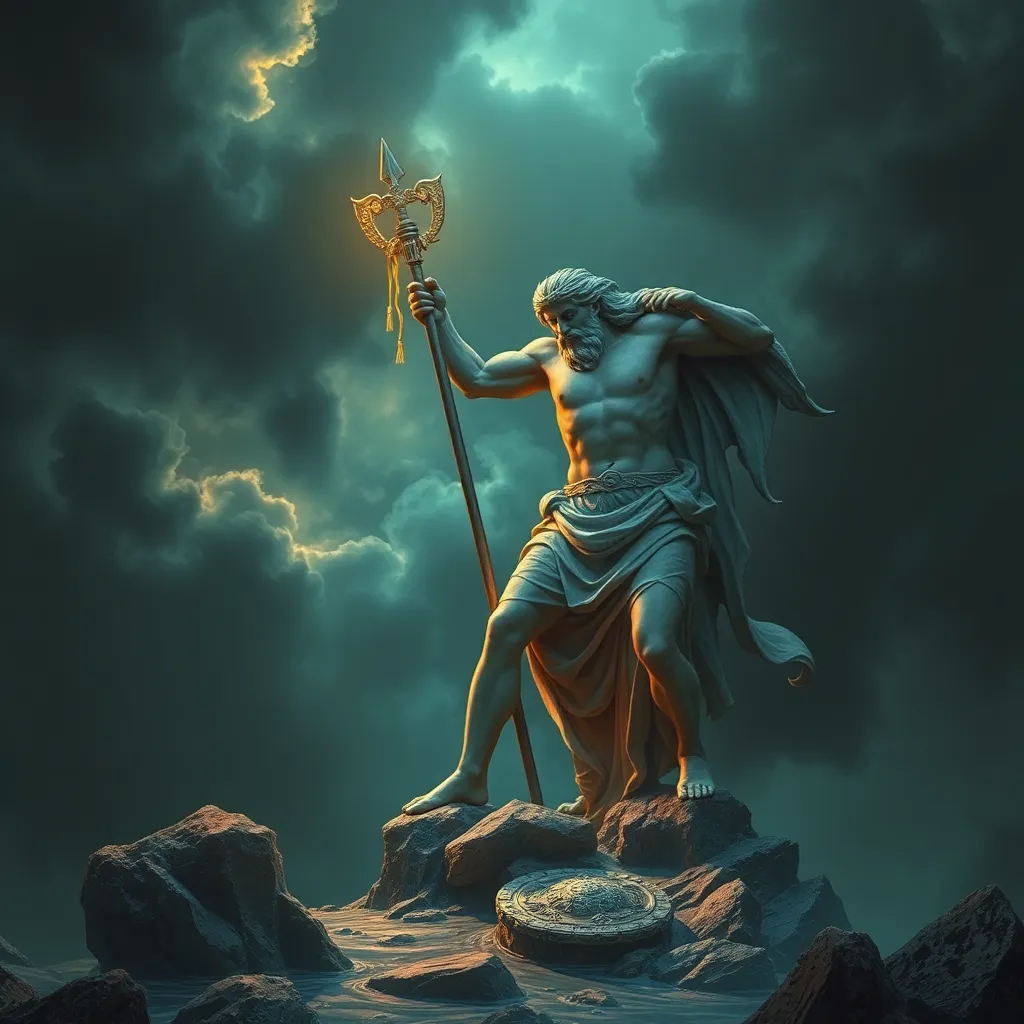The Myth of Perseus: Lessons on Sacrifice and Redemption
I. Introduction
The myth of Perseus is one of the most celebrated tales in Greek mythology, encapsulating themes of bravery, sacrifice, and redemption. Perseus, the son of Zeus and Danaë, embarks on a perilous journey that not only tests his strength and cunning but also highlights the importance of sacrifice and the possibility of redemption. This article aims to delve into the deeper meanings behind the myth, examining how these themes resonate throughout Perseus’s adventures and their relevance in today’s world.
II. The Origins of Perseus
Perseus was born into a troubled legacy, as he was the son of Danaë, who was imprisoned by her father, King Acrisius, due to a prophecy that claimed her son would one day kill him. To prevent this fate, Acrisius locked Danaë away, but Zeus, enamored by her beauty, transformed into a shower of gold and visited her, resulting in the birth of Perseus.
The prophecy’s implications loomed over Perseus from the very beginning of his life. When Acrisius discovered the existence of his grandson, he cast Danaë and the infant Perseus into the sea in a chest, hoping to rid himself of the threat. However, they were rescued by the fisherman Dictis on the island of Seriphos, where they would ultimately find refuge.
Divine intervention played a crucial role in shaping Perseus’s early life. The gods, particularly Athena and Hermes, would later aid him in his quest, providing him with the tools and guidance necessary to confront the challenges ahead.
III. The Quest for Medusa’s Head
The quest for Medusa’s head serves as the central narrative of Perseus’s journey. Medusa, once a beautiful maiden transformed into a Gorgon, possessed the terrifying ability to turn anyone who gazed upon her into stone. This quest was significant not only for its peril but also for the lessons it imparted about courage and sacrifice.
- Challenges Faced: Perseus encountered numerous obstacles, including navigating treacherous lands and confronting formidable foes.
- Personal Sacrifices: To obtain Medusa’s head, Perseus had to confront his fears and make sacrifices, including the risk of his own life.
- Divine Gifts: Perseus was equipped with gifts from the gods, such as Hermes’ winged sandals, a reflective shield from Athena, and Hades’ helmet of invisibility, which were instrumental in his success.
IV. Themes of Sacrifice in Perseus’s Journey
Throughout his journey, Perseus embodies the theme of sacrifice in various forms:
- Personal Sacrifices: Perseus willingly risks his life to save others, exemplifying selflessness and bravery.
- Impact on Others: His quest has far-reaching consequences, affecting the lives of many, including those he saves and those he inadvertently harms.
- Heroism and Sacrifice: The concept of heroism in Greek mythology is often intertwined with sacrifice, illustrating that true heroes must be willing to give up something valuable for the greater good.
V. The Redemption Arc in the Myth
Upon returning from his quest, Perseus faces the consequences of his actions. His victory over Medusa not only serves as a personal achievement but also leads to significant changes in the lives of others.
- Consequences of Actions: Perseus’s use of Medusa’s head to defeat the sea monster Cetus and save Andromeda demonstrates his growth and newfound responsibility.
- Redemption Through Deeds: By saving Andromeda, he redeems himself and turns his violent conquest into an act of heroism.
- Character Transformation: Throughout the story, Perseus evolves from a fearful youth into a confident hero, embodying the qualities of sacrifice and redemption.
VI. Comparison with Other Myths of Sacrifice and Redemption
The themes of sacrifice and redemption are not unique to Perseus. Many other Greek myths explore similar motifs:
- Hercules: His Twelve Labors showcase his journey of atonement and the sacrifices he makes to regain his honor.
- Odysseus: His long journey home is filled with sacrifices and trials, ultimately leading to his redemption as he reunites with his family.
These universal themes reflect the human experience, illustrating how sacrifice often leads to personal growth and redemption, a concept that resonates in literature and culture across time.
VII. Modern Interpretations and Relevance
In contemporary society, the myth of Perseus continues to be interpreted in various ways:
- Modern Adaptations: Films, books, and art often reinterpret Perseus’s story, highlighting the ongoing relevance of his journey.
- Societal Relevance: The themes of sacrifice and redemption resonate deeply in today’s world, reminding us of the importance of selflessness and the potential for personal transformation.
- Lessons for Modern Life: Perseus’s story teaches us that facing our fears and making sacrifices for others can lead to growth and redemption in our own lives.
VIII. Conclusion
In conclusion, the myth of Perseus offers profound lessons on sacrifice and redemption. His journey from a frightened boy to a heroic figure underscores the importance of bravery, selflessness, and the transformative power of our choices. As we reflect on the enduring nature of these themes, let us embrace the ideals of sacrifice and seek redemption in our own lives, striving to make a positive impact on those around us.




